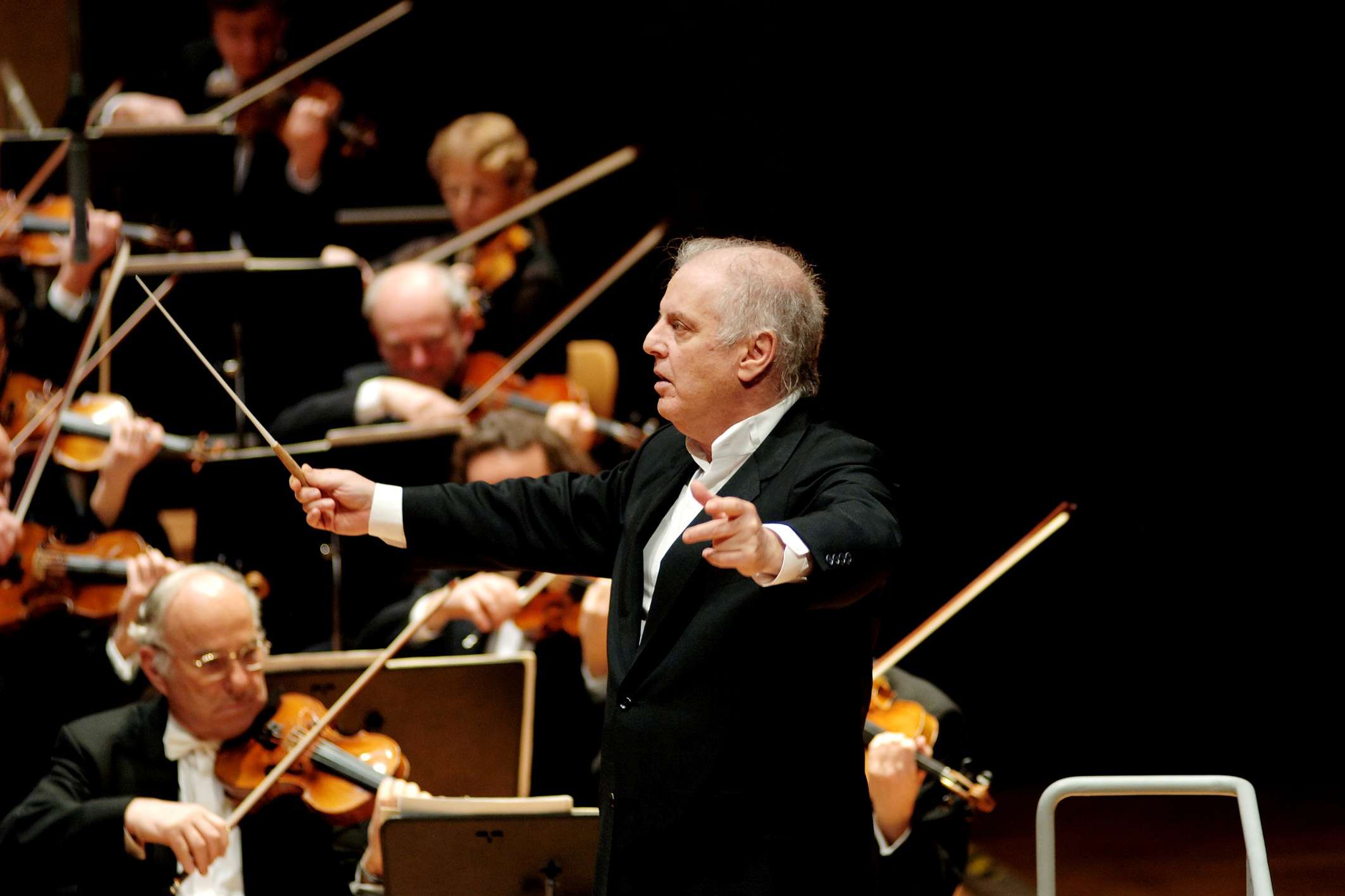|
Back
Flawed but nonetheless enjoyable Lucerne
Kunst- und Kulturzentrum Luzern
09/16/2011 -
Wolfgang Amadeus Mozart: Piano Concerto No. 21 in C major, K. 467
Anton Bruckner: Symphony No. 7 WAB 107 (Nowak edition)
Staatskapelle Berlin, Daniel Barenboim (piano and conductor)

D. Barenboim (© Monika Rittershaus)
The Staatskapelle Berlin under Barenboim effectively brought this year’s prestigious Lucerne Summer Festival to a close with two concerts, this being the first (the second being Walküre Act 1 with Nina Stemme and Peter Seiffert): yet more Bruckner, but first some Mozart.
Possibly to ensure the hall was filled (which it was), possibly to remind us that Barenboim can still tickle the ivories, this concert began with Mozart’s Piano Concerto No. 21. Barenboim positioned his piano so he had his back to the audience which seemed a mite impolite, did little for the sound or audience concentration, and meant that one saw neither expression on his face or his dexterity on the keyboard. He would stand whenever he had a pause to keep the tempi going in the orchestra – hardly necessary when the orchestra seemed to be playing on auto-pilot. The performance was prosaic: there was little lyricism, expression or joyousness.
Happier times after the interval: Bruckner’s Seventh seems such a confident, logical and perfectly constructed work after hearing his Sixth the night before and Barenboim gave us a thoughtful and incisive performance. His tempi were soundly judged, his phrasing insightful with plenty of dynamic shading wherever appropriate. There was tension and energy in the outer movements and in the Scherzo. Barenboim has a clear penchant for Bruckner. However the performance was marred by too many glitches, mainly in the brass (though their final peroration was fine), and some rough edges in the strings. Praise though for the hard-working cellos, virile double basses, muscular timpanist and the tuba player. However a performance does not have to be technically perfect to make it enjoyable, and this was in the end a Bruckner Seven to enjoy.
The Staatskapelle Berlin is the oldest orchestra in Berlin and the orchestra of the Berlin State Opera (Unter den Linden), formerly in East Berlin. The orchestra traces its roots to 1570; the Berlin Philharmonic by contrast is “only” just more than 100 years old. Nevertheless it has been in the shadow of its more illustrious neighbour for many decades and this performance will have done little to convince anyone that the gap is narrowing.
There was a nice touch at the end of the performance when Barenboim turned all members of his orchestra round to face and receive the applause of those members in the audience with seats in the Choir. On previous nights, with more famous orchestras, the Choir seats had not managed to be filled.
Barenboim is not, either at the keyboard or on the podium, to any extent a showman, but a consummate and highly accomplished musician, at home as much in a Mozart piano concerto as in a vast Romantic symphony. Courageously he will bring an entire Bruckner cycle to Vienna in June next year which will be quite a challenge for orchestra and conductor: they will need to iron out more glitches in their playing to impress an audience in Bruckner’s homeland.
John Rhodes
|